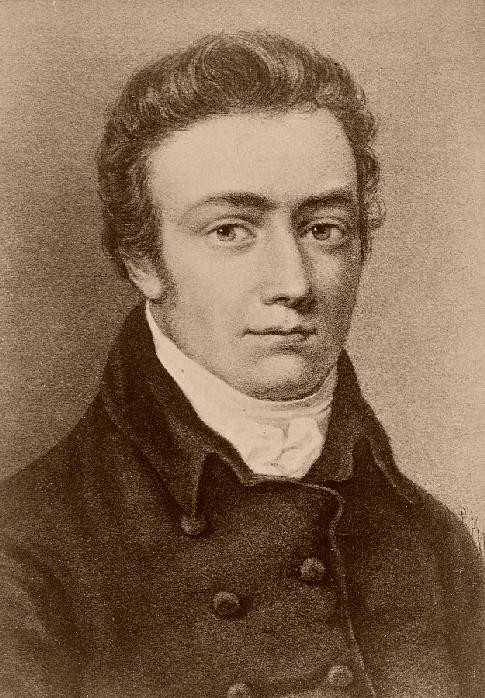Samuel Taylor Coleridge Quotes
31 May 1830.
Table Talk (1821–1834)
Context: The Pilgrim's Progress is composed in the lowest style of English, without slang or false grammar. If you were to polish it, you would at once destroy the reality of the vision. For works of imagination should be written in very plain language; the more purely imaginative they are the more necessary it is to be plain.
Source: The Rime of the Ancient Mariner
Source: The Rime of the Ancient Mariner
23 July 1827
Table Talk (1821–1834)
Source: The Rime of the Ancient Mariner
“And the spring comes slowly up this way.”
Part I
Bartlett's Familiar Quotations, 10th ed. (1919), Christabel
“Clothing the palpable and familiar
With golden exhalations of the dawn.”
The Death of Wallenstein, Act i, scene 1
Bartlett's Familiar Quotations, 10th ed. (1919)
Source: Biographia Literaria (1817), Ch. XII
Epitaph on an Infant
Bartlett's Familiar Quotations, 10th ed. (1919)
“Brute animals have the vowel sounds; man only can utter consonants.”
20 August 1833
Table Talk (1821–1834)
“Until you understand a writer's ignorance, presume yourself ignorant of his understanding.”
Source: Biographia Literaria (1817), Ch. XII
“The Eighth Commandment was not made for bards.”
"The Reproof and Reply" (1823); the eighth commandment is "Thou shalt not steal".
“I counted two and seventy stenches,
All well defined, and several stinks.”
" Cologne http://etext.lib.virginia.edu/stc/Coleridge/poems/Cologne.html" (1828)
Kubla Khan (1797 or 1798)
15 August 1833
Table Talk (1821–1834)
20 August 1833
Table Talk (1821–1834)
“The knight's bones are dust,
And his good sword rust;
His soul is with the saints, I trust.”
"The Knight's Tomb" (c. 1817)
“In the hexameter rises the fountain's silvery column;
In the pentameter aye falling in melody back.”
"The Ovidian Elegiac Metre" (translated from Schiller) (1799)
“The Dwarf sees farther than the Giant, when he has the Giant's shoulders to mount on.”
The Friend; A Series of Essays (1812), No. 15 (30 November 1809), p. 228
Cf. Isaac Newton, letter to Robert Hooke (15 February 1676): "If I have seen further it is only by standing on the shoulders of giants".
“Farce may often border on tragedy; indeed, farce is nearer tragedy in its essence than comedy is.”
20 August 1833
Table Talk (1821–1834)
"Hymn in the Vale of Chamouni" (1802)
“An idea, in the highest sense of that word, cannot be conveyed but by a symbol.”
Source: Biographia Literaria (1817), Ch. IX
Letter to William Sotheby (10 September 1802)
Letters
The Friend, No. 14
Bartlett's Familiar Quotations, 10th ed. (1919)
“Her gentle limbs did she undress,
And lay down in her loveliness.”
Part I, l. 237
Christabel (written 1797–1801, published 1816)
“Veracity does not consist in saying, but in the intention of communicating truth.”
Source: Biographia Literaria (1817), Ch. IX
Letter to Thomas Poole (23 March 1801)
Letters
Source: Biographia Literaria (1817), Ch. XIII
“It was a miracle of rare device,
A sunny pleasure-dome with caves of ice!”
Kubla Khan (1797 or 1798)
“What is an Epigram? a dwarfish whole,
Its body brevity, and wit its soul.”
"What is an Epigram?" http://books.google.com/books?id=xUggAAAAMAAJ&q=%22What+is+an+Epigram+A+dwarfish+whole+Its+body+brevity+and+wit+its+soul%22&pg=PA253#v=onepage, The Morning Post, ( 23 September 1802 http://www.britishnewspaperarchive.co.uk/viewer/bl/0000175/18020923/007/0003)
“The fancy is indeed no other than a mode of memory emancipated from the order of time and space.”
Source: Biographia Literaria (1817), Ch. XIII
“I stood in unimaginable trance
And agony that cannot be remembered.”
Remorse, Act iv, scene 3
Bartlett's Familiar Quotations, 10th ed. (1919)
“And the Devil did grin, for his darling sin
Is pride that apes humility.”
"The Devil's Thoughts", st. 6 (1799)
“The frost performs its secret ministry,
Unhelped by any wind.”
" Frost at Midnight http://etext.lib.virginia.edu/stc/Coleridge/poems/Frost_at_Midnight.html", l. 1 (1798)
Aids to Reflection (1873), Sequelae to Aphorism 107
